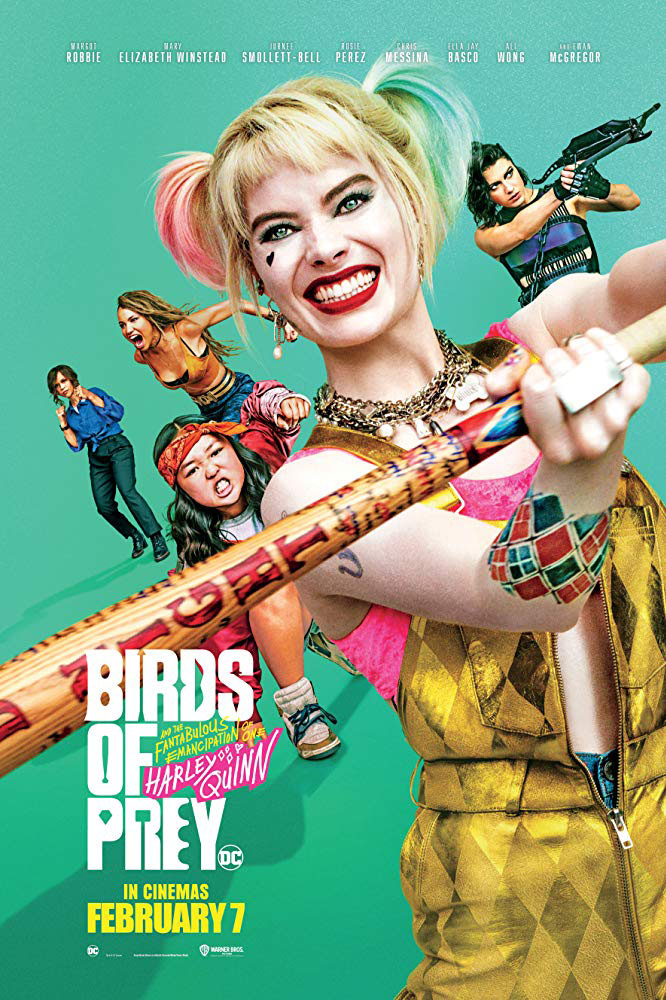No matter how I try to approach it, “Birds of Prey (and the fantabulous Emancipa-tion of One Harley Quinn)” seems to exist in relation to some other film that came before. For example, it’s impossible not to think of Margot Robbie’s turn as Harley Quinn in relation to 2016’s “Suicide Squad”, even as I think the latter film was a better instalment. Its girl-power overtones also seem tied to the recent female-focused comic book films like “Wonder Woman” and “Captain Marvel”. And throughout the film, the aggressive ironic detachment, which director Cathy Yan and writer Christina Hodson overemphasise by way of preening narration, feels directly descended from the “Deadpool” films. No matter how you think of it, the film doesn’t quite emerge as something singular, which is immediately troubling for a film that seems so devoted to doing its own thing. But, by this point, a tale of women behaving badly is not singular just for its existence. Still, one thing in its favour is the way “Birds of Prey” harnesses its ambling discursiveness to occasionally satisfying delights, making it hard to reject it completely.
Despite the title that nods to solidarity, the film is about Harley Quinn, who finds herself struggling to cope after her break-up with the Joker leaves her emotionally and physically unmoored. Not only is she struggling with her break-up blues, but newly untethered to the Joker means she is no longer immune from harm in a city where everyone has a bone-to-pick with her.
Harley’s primary antagonist is Roman Sionis, a gangster with his hands in many unsavoury dealings. Through mere happenstance Harley finds herself thrust into a story featuring The Huntress (a vengeful assailant), Black Canary (a vigilante songbird), detective Renee Montoya and teenage pickpocket Cassandra Cain. Plot details are, in truth, negligible. The film seems noncommittal about what happens, and more interested in thrusting the audience into a heady atmosphere of freneticism, subversive humour and general chaos. And, credit to director Yan, who has firm control of the style of the film. The enjoyability of that style is another question. This is a loud film. Sometimes too loud. But, the loudness of the sound design, sometimes chaotically so, is in keeping with the film’s own messiness which is intriguing to watch. Up to a point.
It’s a matter of taste, but Robbie’s Harley is a woman best deployed in small doses. But, by placing her front and centre, in a film that teases a more communal feminine interest, her unceasing penchant for the overzealous begins to overwhelm quickly. It also doesn’t help that, for all that Robbie does, Harley is very rarely the most interesting character on screen – thematically, ideologically or even aesthetically. The film’s writing is more complicated when it comes to its villains. As the film develops, Hodson seems too committed to making our villain Roman Sionis as one-dimensional as possible – he’s equipped with every vice. And yet, Ewan McGregor plays him in a way that resists those limits. The film veers off into something bizarre but not unenjoyable in the moments we spend with Sionis and his (not unsubtle) homoerotic chemistry with his henchman Victor Zsasz (Chris Messina in good form, equally disgusting and alluring). They’re the most interesting part of the film, even as their arc – like many in the film – is inert.
Elsewhere, the supporting cast is game if underused. Jurnee Smollett-Bell has the most thinly crafted role, playing a version of Black Canary that the filmmakers seem ambivalent about despite the relatively large screen-time she enjoys. It’s her sheer ability to be charming that manages to make the role work. Rosie Perez (as Montoya), Mary Elizabeth Winstead (as The Huntress) and Ellen Jay Basco (as Cassandra Cain) are given better opportunities that, although limited in scope, have enough to sustain our interest. The wheels in motion that result in the five women finally coming together strain credulity, and it also comes so late in the film it feels like a disservice. Still, those moments offer what the film has been struggling to find for much of its running time. “Birds of Prey” works best when Harley Quinn’s impudence can be filtered through something (or someone) to lessen it, and Perez and Smollett-Bell, in particular, do good jobs of complementing what Robbie is doing.
Ultimately, “Birds of Prey” gets by on its willingness to know its own limits. Its 100-minute running time fees like the maximum time we can spend in this world, with these people and although its ending seems committing to setting up future forays, I think it’s best we leave the story alone for now.










